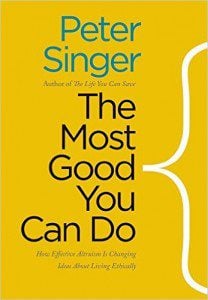(Ronald J. Sider, Fixing the Moral Deficit: A Balanced Way to Balance the Budget, InterVarsity Press, 2012, 171 pages.)
171 pages.)
The title of this post could be seen as flippant, callous, arrogant, or all of the above — implying that an “Evangelical Christian Worth Listening To” is such a rarity as to be worthy of remark. Well, in an age in which many conservatives exclusively watch Fox News (read: “Faux News”?) and read The Wall Street Journal, whereas many liberals watch MSNBC and read The New York Times — and rarely the ‘twain shall meet — it is perhaps worthy of remark when progressive Christians constructively engage with evangelicals and vice-versa.
I first encountered Ron Sider’s work when I was still an evangelical Christian. It was the summer after my junior year in high school, and one of the directors of the summer camp, where I was serving as a camp counselor, recommended that I borrow his copy of Sider’s landmark 1978 book Rich Christians in an Age of Hunger: Moving from Affluence to Generosity (recently revised and updated in a 2005 edition). This book provocatively highlights that,
Every day 30,000 children still die of starvation and preventable diseases, and 1.2 billion people live in relentless, unrelieved poverty worldwide…. Conservatives blame sinful individual choices and laziness. Liberals condemn economic and social structures.
Sider seeks a middle way that accounts for both these positions and seeks to move beyond them toward common ground and the common good. I grew up going to church multiples time a week, but I had never heard a Christian speak so radically, profoundly, and truthfully about social justice, all from a biblical perspective.
I was later deeply moved when I encountered Sider’s challenging speech at the 1984 Mennonite World Conference, which helped inspire the formation of the Christian Peacemaker Teams (CPT). He rightly pointed out that calls for alternatives to violence were often hollow because we have so many willing to risk death in war, but so few willing to risk death in nonviolent activism:
We must take up our cross and follow Jesus to Golgotha. We must be prepared to die by the thousands….
Unless comfortable North American and European Mennonites and Brethren in Christ are prepared to risk injury and death in nonviolent opposition to the injustice our societies foster and assist in Central America, the Philippines, and South Africa, we dare never whisper another word about pacifism to our sisters and brothers in those desperate lands. Unless we are ready to die developing new nonviolent attempts to reduce international conflict, we should confess that we never really meant the cross was an alternative to the sword. Unless the majority of our people in nuclear nations are ready as congregations to risk social disapproval and government harassment in a clear ringing call to live without nuclear weapons, we should sadly acknowledge that we have betrayed our peacemaking heritage. Making peace is as costly as waging war. Unless we are prepared to pay the cost of peacemaking, we have no right to claim the label or preach the message….
What would happen if we in the Christian church developed a new nonviolent peacekeeping force of 100,000 persons ready to move into violent conflicts and stand peacefully between warring parties in Central America, Northern Ireland, Poland, Southern Africa, the Middle East, and Afghanistan? Frequently we would get killed by the thousands. But everyone assumes that for the sake of peace it is moral and just for soldiers to get killed by the hundreds of thousands, even millions. Do we not have as much courage and faith as soldiers?
For centuries we Anabaptists have believed there is a different way, a better way. Our world needs that alternative. Now. But the world will be able to listen to our words only if large numbers of us live out the words we speak. Our best sons and daughters, our leaders, and all our people must be ready to die. The cross comes before the resurrection.
There is finally only one question: Do we believe Jesus enough to pay the price of following him? Do you? Do I?
Do you see why I titled this post as about an evangelical worth listening to? Unlike many figures that evangelical Christians seem drawn to such as Rush Limbaugh, Sarah Palin, and Rick Santorum, who too often embrace “know-nothing” position, Sider’s work is steeped in data, an intimate familiarity with the Bible, and an embrace of scholarship, while writing in an accessible style. It doesn’t hurt that he has a Ph.D. from Yale.
In this latest book, Sider brings his usual provocative style and theological lens to the skyrocketing budget deficit (Chapter 1) and economic inequality (Chapter 2):
The distribution of income in the United States today is more unequal than at anytime since 1928, just before the Great Depression. (24)
The CEO of Walmart earned as much in one hour in 2008 as many store emplorees earn in a whole eart of full-time work…. The richest one% own more of the nation’s wealth than the bottom 90%. And the top 1% of tax filers earn much more income each year than the bottom 50% of the population. (30-31)
Chapter 3 addresses how Jesus’ call to love your neighbor (“The Second Greatest Commadment,” after the call to love God) as well as a host of other biblical examples call us to rectify both the deficit and inequality. He continues with a proposed middle way, and concludes with concrete suggestions of “Action Steps” readers can take (145-148).
I lean toward the progressive side of the fence these days, and am not fully convinced of Sider’s perspective, but he remains an important and vital evangelical Christian voice worth listening to.
This book review is a sponsored post that is part of the Roundtable at the Patheos Book Club.Visit the Book Club website for more free resources related to this book.
The Rev. Carl Gregg is a trained spiritual director, a D.Min. candidate at San Francisco Theological Seminary, and the pastor of Broadview Church in Chesapeake Beach, Maryland. Follow him on Facebook (facebook.com/carlgregg) and Twitter (@carlgregg).












